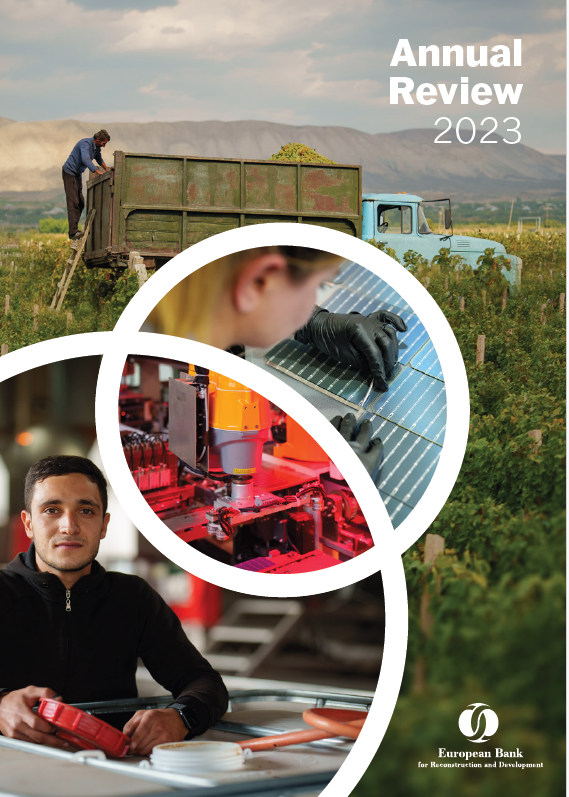
- Details
"The Annual Review 2023 highlights historic decisions that will strengthen and expand the EBRD’s reach and boost its long-term impact. Our shareholders approved both a €4 billion capital increase to continue our vital work in Ukraine, and expansion into sub-Saharan Africa and Iraq. The EBRD continues to respond to crises, reaching a record of €6.5 billion of financing in our Green Economy Transition approach, and providing support for Türkiye and Morocco in the aftermath of terrible earthquakes."
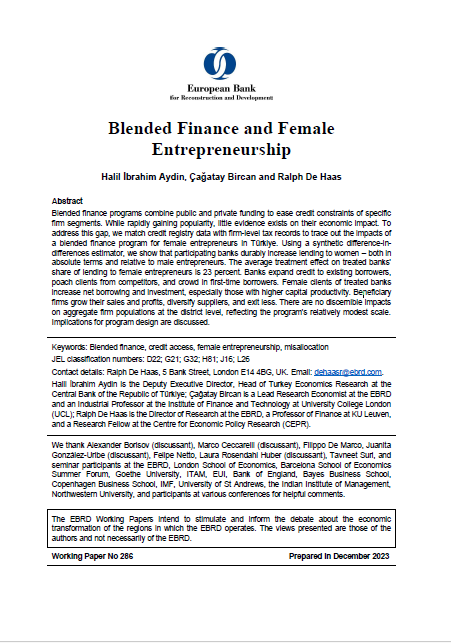
- Details
"Blended finance programs combine public and private funding to ease credit constraints of specific firm segments. While rapidly gaining popularity, little evidence exists on their economic impact. Female clients of treated banks increase net borrowing and investment, especially those with higher capital productivity. Beneficiary firms grow their sales and profits, diversify suppliers, and exit less."
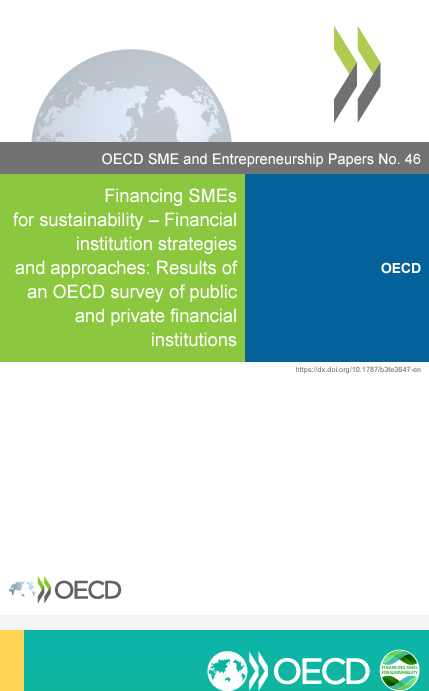
- Details
"This policy paper presents the findings of a 2023 survey of public development banks and private financial institutions, conducted by the by the OECD Platform on Financing SMEs for Sustainability. It provides insights on financial institutions' current approaches and plans for the integration of climate considerations in their SME operations. It also provides information on the offer of finance and non-financial support for SMEs’ net zero investments and on related SME climate-related data requirements."
Read more … Financing SMEs for sustainability – Financial institution strategies and approaches
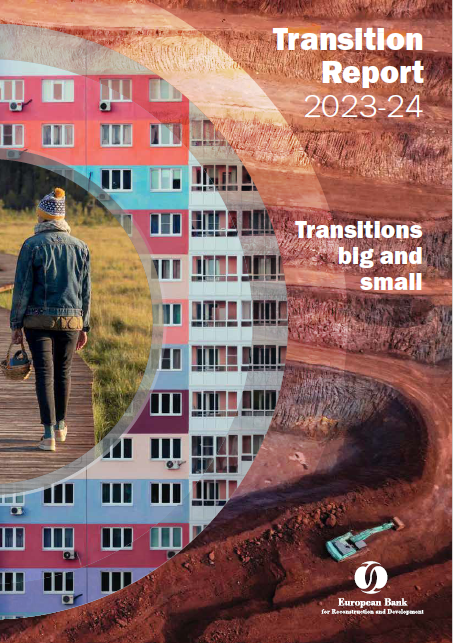
- Details
"The deep structural transformation of the global economy is affecting the lives, livelihoods and living conditions of people across the EBRD regions. The Transition Report 2023-24 focuses on “big transitions” such as the shift towards sustainability, the reconfiguration of global supply chains, and the scramble for raw materials for the digital and green economies. It looks at how these macro-level trends translate into “small transitions”: career moves, changes in physical and mental health, the refurbishment of housing and – ultimately – changes in people’s satisfaction with life."
Read more … EBRD Transition report – 2023-24: Transitions big and small
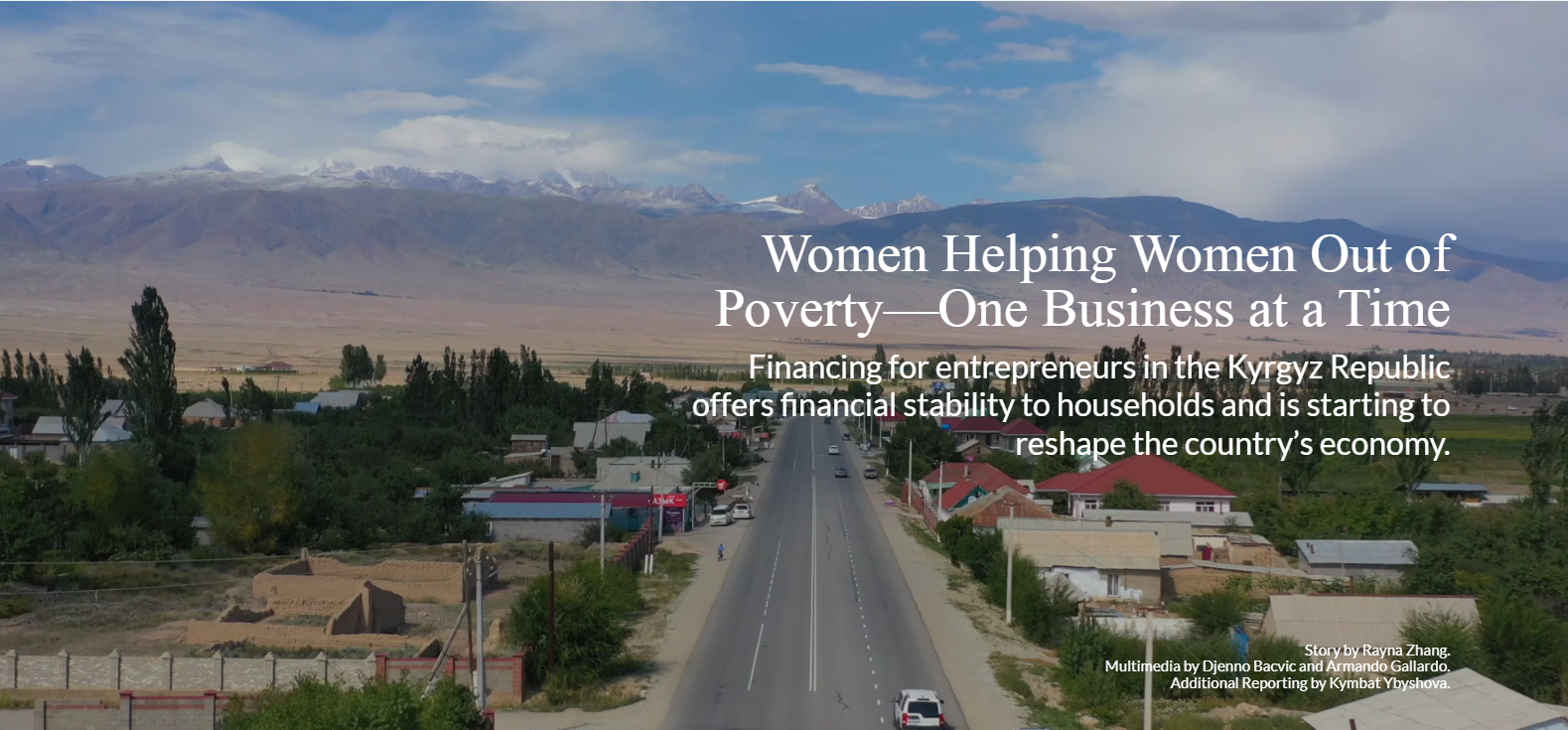
- Details
The International Finance Corporation (IFC) has published an article on SME finance based on the stories of women entrepreneurs from the Kyrgyz Republic.
Read more … Women Helping Women Out of Poverty—One Business at a Time
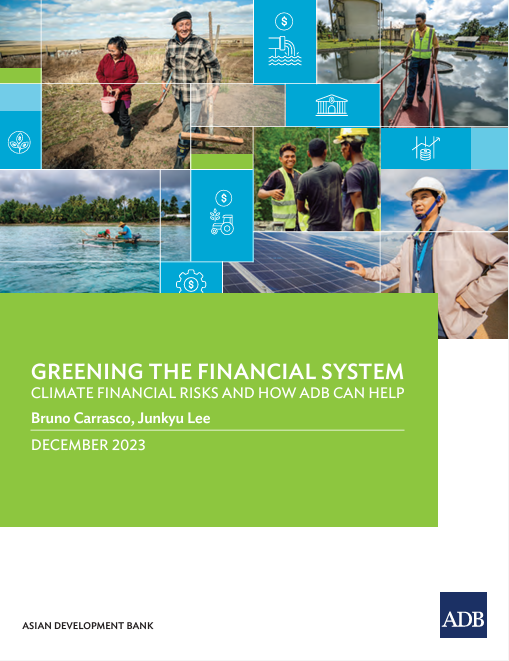
- Details
"This report outlines the opportunities for ADB and other multilateral development banks to help make financial markets in Asia and the Pacific more resilient to climate risk and support the transition to a low carbon economy. Explaining how ADB can play a catalytic role in greening the financial system, the report sets out policy options, assesses the bank’s strategic operational priorities, and considers implementation challenges. Analyzing ways ADB can scale up green financing and help financial authorities in developing member countries manage climate risk, it shows how early policy decisions can reduce the impact on regional economic growth."
Read more … Greening the Financial System: Climate Financial Risks and How ADB Can Help
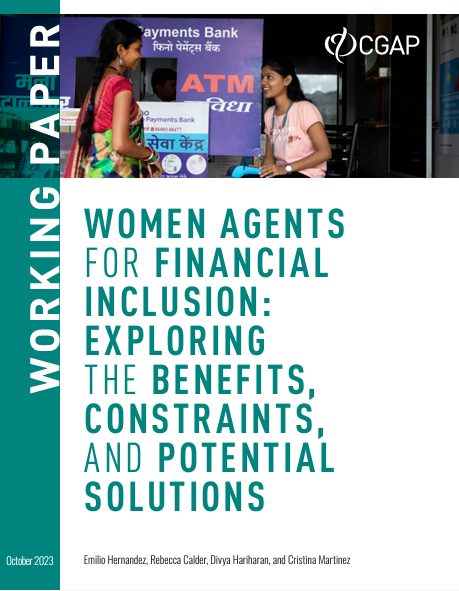
- Details
"A strong relationship has been observed globally between Cash-In, Cash-Out (CICO) agent network coverage and greater use of Digital Financial Services (DFS), especially by low-income and rural customers. However, the expansion of these networks has not automatically translated into an increase in the proportion of women with access to DFS as customers and agents, hindering their ability to reap the benefits of DFS."
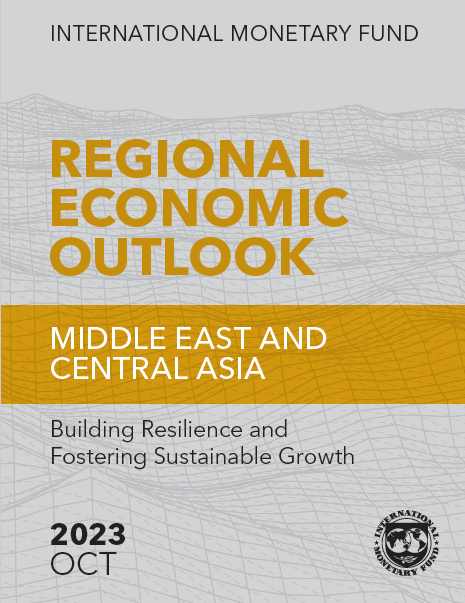
- Details
"Across the Middle East and Central Asia, the combined effects of global headwinds, domestic challenges, and geopolitical risks weigh on economic momentum, and the outlook is highly uncertain. Growth is set to slow this year in the Middle East and North Africa region, driven by lower oil production, tight policy settings in emerging market and middle-income economies, the conflict in Sudan, and other country-specific factors. In the Caucasus and Central Asia, although migration, trade, and financial inflows following Russia’s war in Ukraine continue to support economic activity, growth is set to moderate slightly this year."
Read more … IMF’s Regional Economic Outlook: Middle East and Central Asia, October 2023
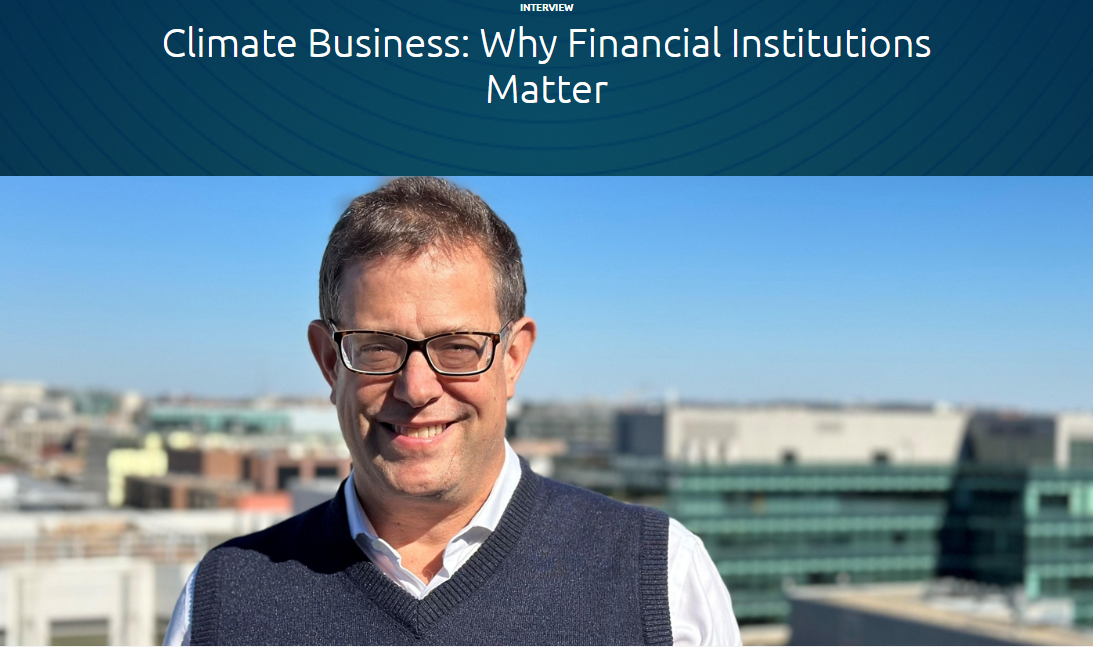
- Details
The International Finance Corporation (IFC) has published an interview with Will Beloe, an acting global head of climate finance at IFC, on the topic of climate finance. Will Beloe has over 15 years’ experience helping financial institutions in emerging markets to grow their climate business. As principal industry specialist, Will is responsible for developing and executing a global strategy to reduce greenhouse gas emissions across IFC’s 800+ financial institution partners.
Read more … Climate Business: Why Financial Institutions Matter
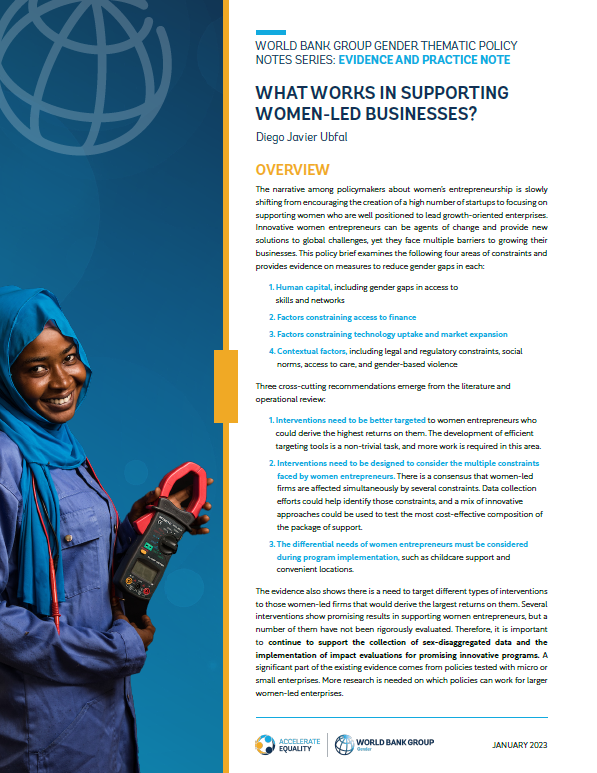
- Details
"The narrative among policymakers about women’s entrepreneurship is slowly shifting from encouraging the creation of a high number of startups to focusing on supporting women who are well positioned to lead growth-oriented enterprises. Innovative women entrepreneurs can be agents of change and provide new solutions to global challenges, yet they face multiple barriers to growing their businesses. This policy brief examines the following four areas of constraints and provides evidence on measures to reduce gender gaps in each: 1. Human capital, including gender gaps in access to skills and networks 2. Factors constraining access to finance 3. Factors constraining technology uptake and market expansion, and 4. Contextual factors, including legal and regulatory constraints, social norms, access to care, and gender-based violence."
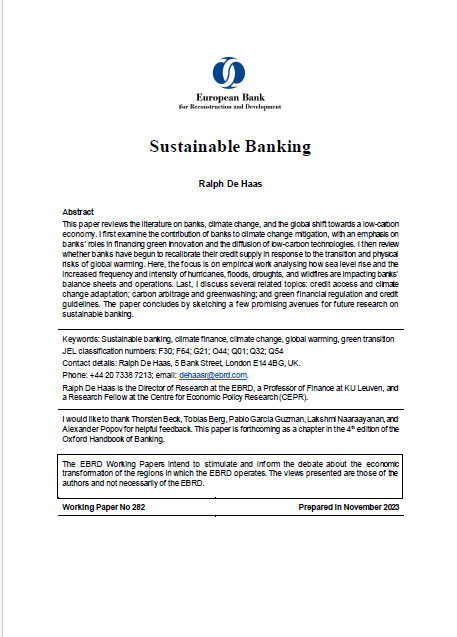
- Details
This paper reviews the role of banks in addressing climate change and the shift to a low-carbon economy. It discusses how banks finance green innovation, low-carbon technologies, and adapt to climate-related risks. The paper also covers topics like credit access, carbon arbitrage, greenwashing, and financial regulation. It concludes by suggesting future research areas in sustainable banking.

- Details
"This report explores Uzbekistan’s nascent technology start-up ecosystem, outlines hurdles entrepreneurs face to turn ideas into viable businesses, and offers practical ways to create the environment they need to thrive."
- Challenges to Women’s Economic Empowerment in Rural Tajikistan: A Study from Road Projects
- IMF's World Economic Outlook, October 2023
- WB's Europe and Central Asia Economic Update, Fall 2023: Sluggish Growth, Rising Risks
- Recent Central Bank Digital Currency Developments in Asia and Their Implications


